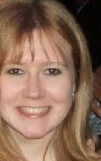
Name: Elizabeth Fetterman
Title: Editorial Coordinator
Company: Weill Cornell Medicine
Years in current position: 5
Elizabeth graduated from Seattle University with a B.A. in English literature and a minor in business administration. Before her job as an editorial coordinator, she worked as a managing editor for JTE Multimedia (2.5 years) and as a medical copy editor/proofreader for Springer Nature (2 years).
RR: How did you get involved in medical editing/publishing? And what brought you to your current role?
EF: After graduating with an English major/business minor at Seattle University, I decided to move back to the East Coast so I could pursue a career in publishing. My parents lived outside Philadelphia, and I applied for every editorial job nearby. Philadelphia is home to many medical publishers. Like many English majors, I was eager to work in fiction publishing. However, I got attached to medical publishing very quickly, both because of the diversity of the work and the authors/content. In my first two positions (Current Medicine Group and JTE Multimedia), I was trained as a project manager/medical copy editor for book chapters and journal articles. After a few years living in the Philadelphia area, I started to grow restless. It had been an exciting experience moving to Seattle for college, and I was eager to spread my wings again. I applied for positions outside Pennsylvania . . . D.C. and New York were home to many publishers and societies. I’d become very attached to medical publishing and was not interested in switching to a different field. I was lucky to be offered a position by the new editor-in-chief of an otolaryngology journal in New York. It had not been necessary for New York to be my next destination, but it was a great fit—both the job and the setting.
RR: Can you take me through a typical work day?
EF: A jumble of tasks make the day chaotic and interesting. I answer work emails, send out decision letters for papers, proofread the monthly print issue, and run statistical reports. I also fill my days by selecting articles to publish in the next issue, scheduling journal meetings and conference calls, and developing slide shows for meeting presentations. Additionally, I serve as a liaison between different departments (production, editorial, etc.).
RR: What are the top three things you enjoy about your job?
EF: I love that I help doctors (our authors) publish their research. I also love that by working with medical articles, I am constantly learning about conditions, treatments, etc. And third, I love that I have a career where I’m still able to write and edit.
RR: What are some challenges you run into as an editorial coordinator?
EF: I serve as a 1-person department at Weill Cornell. My colleagues are spread out in different offices (production, editorial, etc.). It can be a challenge to coordinate at all times via phone, our manuscript-processing site, and email.
RR: In order to be successful in your role, what are some vital skills you need to have?
EF: Being organized, attentive to timelines, detail oriented, and able to multitask are important assets. Previous training as a medical copy editor has been important, as I serve as a late-stage proofreader for our print issues. Also, being able to work independently and, at other times, with a publishing team (remotely) are important.
RR: Have you observed any major changes to the industry since you started? Do you have any predictions for the future?
EF: Since I entered medical publishing 10 years ago, I’ve observed medical copyediting is often outsourced to freelancers, etc. Manuscripts are being submitted and peer reviewed via online manuscript sites. There are many online tools (e.g., altmetrics) that help authors get recognized and promote their work. Also, open-access journals are gaining recognition as a new way to publish.
I predict many of the changes I’ve observed (above) are going to be the new norm.
RR: Can you describe a bit more about your experience in the scholarly publishing industry?
EF: There’s a diversity of positions in this field: editing, project management, advertising, production, etc. For me, as a former English major, medical publishing does not inspire creativity the way fiction does. But it does inspire. The articles I help publish are a humble reminder of the innumerable, sometimes heartbreaking conditions that people struggle with. The articles offer guidance on management and hope for developing treatments. The publishing process can be stressful and monotonous, both for the editors and the authors. But there’s an undercurrent of humanity and passionate ambition from our authors that consistently drives me in my work. Just as there are physicists who are making discoveries in space, doctors are making discoveries that further our understanding of ourselves. For those who want to be inspired and motivated in their work, serving as an editor in the medical publishing field is a rewarding position.
RR: Have you had a favorite job over the years? Which job was that and why?
EF: I’ve loved all the medical publishers I’ve had the privilege to work for. If I were to go back further in time, I would consider my job at a nonprofit organization that helped foster kids to be a favorite job. There was an energy and a commitment to helping others that inspired me every day. Also, everyone was so friendly. I couldn’t wait to get to work in the morning.
RR: When you were a kid, did you imagine yourself in a job like this?
EF: I always wanted to be a fiction writer. Working in publishing keeps me driven in my own creative pursuits. One day, I’ll send my Victorian novel (in its second of 20 drafts) to a publisher.
